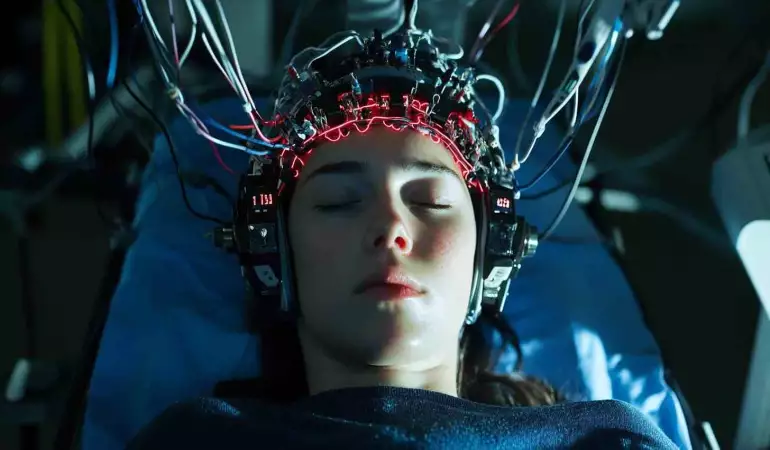Meta introduces artificial intelligence capable of reading minds
Meta's artificial intelligence (AI) team has announced a significant technological breakthrough - an AI tool capable of reconstructing sentences from brain signals alone.
February 07, 2025 15:40
Capable of reproducing up to 80 percent of characters
Meta claims to have achieved a significant breakthrough in AI-assisted decoding of image and speech perception from brain activity.
Their AI tool can decode sentence formation based on non-invasive brain recordings. It can reproduce up to 80 percent of characters and construct sentences from brain signals alone.
Moving closer to AMI
According to Meta, their new AI tool brings the company closer to realizing true ambient intelligence (AMI).
AMI is a proposed direction in artificial intelligence (AI) development in which electronic devices are able to recognize and respond to human presence without direct commands.
This technology opens up possibilities for AI-powered assistants to improve the quality of life even for those who cannot speak or move.
Meta’s AI tool, which can construct sentences from brain signals, would allow AI to better understand human needs and meet them without verbal expression.
The most important aspect of Meta’s achievement is the non-invasive method. Until now, decoding brain activity has only been possible with the help of invasive technologies that require neurosurgical intervention, which makes their application difficult.
The new system is capable of decoding brain signals without the help of experts, and could help restore speech to those who have lost it.
While the technology is not yet fully developed and will require further research before it can be applied in clinical practice, Meta believes that this breakthrough will lead to even greater discoveries in the field of computer-human brain interaction.
Next steps
After developing this technology, Meta intends to continue its research and is donating $ 2.2 million to the Rothschild Foundation Hospital to support further scientific work.
The research will focus on analyzing brain signals and how the brain translates thoughts into a coherent sequence of words.




